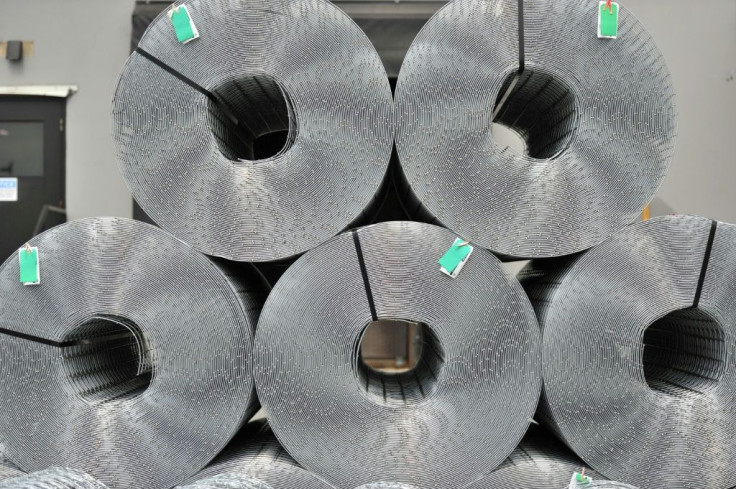A Win For Trump? Supreme Court Decides It Won't Hear Challenge To Steel Tariffs Amid Lingering Trade War

KEY POINTS
- The suit was filed by the American Institute for International Steel
- The domestic steel industry said the tariffs were necessary to level the field against China
- The law allows presidents to act if they think military operations will be negatively impacted
The U.S. Supreme Court on Monday declined to hear arguments on the constitutionality of the 25% tariffs President Trump imposed on steel imports, upholding a lower court decision that found the tariffs are legal.
The ruling came in a case filed by the American Institute for International Steel, a trade association for steel importers and users of imported steel products.
The American Iron and Steel Institute hailed the decision.
“This lawsuit by steel importers was a weak attempt to mask the fact that surging foreign imports have severely impacted the domestic steel industry and threaten our national and economic security,” CEO Thomas J. Gibson said in a press release.
The suit challenged the legality of national security tariffs – the section of the 1962 Trade Expansion Act the Trump invoked in imposing the 25% tariff on steel and 10% on aluminum.
The trade association said the section was unconstitutional because it delegated legislative authority to the president, but the administration argued the high court had rejected that argument in a 1976 opinion.
AIIS had no immediate response to Monday’s decision.
The Cato Institute noted the 1962 trade law sought to open foreign trade, but section 232 was added to ally worries about disruptions in such commodities as oil that might impact military operations. The section rarely has been invoked.
Trump announced the tariffs in March 2018 as part of his burgeoning trade war with China. His justification was challenged because the military relies on just 3% of domestic steel production, and the U.S. produces twice as much steel as it imports, Cato said.
The AIIS initially filed its suit in the Court of International Trade and moved to the federal courts after CIT rejected its arguments, citing the 1976 decision.
Nearly every point in the trade association’s arguments was rejected at the appellate court level in a March 2019 opinion.
Domestic steel manufacturers say the tariffs help level the field between American and Chinese manufacturers. The U.S. government long has accused China of dumping steel for years, suppressing prices.
The European Union also has accused China of keeping steel prices artificially low. It set tariffs as high as 18.9% in April.
(19-1177 American Institute for International Steel, et al v. United States, et al)
© Copyright IBTimes 2025. All rights reserved.






















